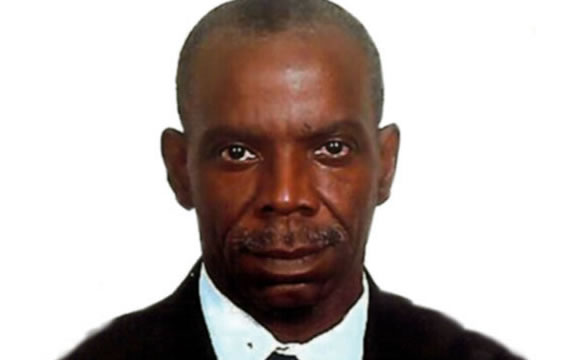
Many officers of the Nigeria Police Force obtain bribes from their compatriots as a matter of course. Some people even claim that the bribetaking phenomenon runs bottom-up in the system, like a pyramid of sorts.
This suggests that the trickle of sometimes lower denominations of the naira that commuter bus drivers and conductors routinely drop at the “toll gates” on both inner-city roads and highways go way up to the “ogas at the top!”
But no one has been able to substantiate and prove that claim. So it is wise to allow it to rest in the realm of speculation until investigative journalists can interrogate the claim for the edification of the Nigerian public.
Maybe Prof Kemi Rotimi or his Patron saint, Prof Tekena Tamuna, specialists in the history of the Nigeria Police, whose PhD dissertation is on the NPF, can shed some clarity on this disgraceful phenomenon.
Officers of the NPF have a nauseating attitude of sometimes asking complainants to provide their transport to the scene of a crime and subsequent transportation costs as the investigations continue. If that fails, the Investigating Police Officer terminates the investigation.
This succinctly confirms that you start to buy justice, not from the courts of law but from the police station where you first encounter the Nigerian legal system; a bad testimonial for Nigeria’s legal system.
This despicable conduct of operatives of the Nigerian security system, now an “accepted” way of life, is not only an ethical problem but it has a psychological and sociological impact on Nigerian society.
The extent to which the poverty in Nigeria has reduced almost everyone performing any form of security job in Nigeria is alarming and scary. So you’ll appreciate the promise by Asiwaju Bola Tinubu, presidential candidate of All Progressives Congress, that his government “will address the welfare… needs of our security personnel.”
If a hungry man is an angry man, you can only imagine the danger that Nigerians walk into any time they use a bank ATM machine in an isolated place. You may have to recite several Hail Marys.
The way the eyes of the security guards, who are supposed to provide you with a sense of security, bore into you, while they hail and wish you to have a nice weekend in tones that suggest you should not leave without tipping them, is scary.
Even those Teddy-Bear-Big bouncers at private parties; hired to ensure that uninvited guests do not gain entrance, wink indulgently at vagrants who come to gate crash. With as low as N500, an uninvited guest can gain admittance.
One day, a female security guard warmly welcomed a patron to a general store in Lagos. The gesture was warmly reciprocated. After searching through the store without finding what he was looking for he left the store in frustration.
When he told the guard that he didn’t get what he was looking for, he got a shock when she asked him, “So, what have you got to give me?” The patron promptly told her that her attitude might drive customers away.
Six months after that encounter, the store was closed down. Clearly, the attitude of the security guards may have caused many customers, who had been embarrassed by the open solicitations, to stay away.
The security guards not only lost their jobs, they also caused their employer to lose his business. The employer probably never knew what hit him and is probably trying to figure out what ran him out of business.
You may recall that under the military regimes you could get military men with the right fee to come help you beat up anyone who offended you. In the early 1970s, a naval officer was said to have been asked by his friend to help “shakara,” or rattled, a debtor.
It turned out that the victim went to report the incident to the police as an armed robbery. The naval officer ended up at the firing squad stakes at Bar Beach in Lagos. He died for trying to help a friend, it seems.
These days you hear of military officers who hire themselves out, for a fee, to escort newly imported vehicles from the Tin Can Island Port in Lagos or from automobile showrooms to any part of Nigeria.
And, in the true spirit of esprit de corps of the security services, neither police officers nor customs nor other security personnel will harass the vehicle, once they sight the hired officer in his newly laundered uniform.
In the same fashion, you hear rumours of (especially) naval officers escorting illegal shipments of Nigeria’s crude petroleum resources out of Nigeria’s territorial waters. Those who are on guard patrol and are not directly involved in the heist turn a blind eye, knowing that at the end of the day they will be “settled.”
There was a report of an oil tanker that was intercepted by security operatives while making away with stolen crude petroleum. Those who intercepted it eventually allowed it to go after “valid papers,” provided by Nigeria National Petroleum Company Limited, suddenly surfaced.
You may have heard about the N25 million offered by petroleum pirates on the MT Diema oil tanker that was intercepted by Tantita Security Services Limited, the company of Government “Tompolo” Ekpemupolo, former leader of Movement for the Emancipation of the Niger Delta.
Tantita’s contract to secure oil pipelines in the Niger Delta region is yielding immense dividends: Not too long after Tantita announced the discovery of a four-kilometre pipeline that is used to steal Nigeria’s crude oil, it discovered yet another illegal petroleum pipeline.
Whereas the four-kilometre pipeline was discovered at Escravos, Delta State, this new discovery, which transports as much as 400,000 barrels per day, is connected to the Trans Forcados Export Pipeline, also in Delta State.
By the way, Escravos in the Portuguese language means “slave.” That should give you an idea of the historical link of that community to the Trans-Atlantic Slave Trade that ravaged the Gulf of Guinea, taking between 10 and 12 million Africans to agricultural plantations in the Americas.
Tantita operatives, obviously eager to prove their loyalty to Nigeria, refused the bribe. But why they burnt the tanker, presumably on the orders of Chief of Defence Staff, Lt Gen Lucky Irabor, and thus polluting the environment, is inexplicable. One hopes it’s not an attempt to cover the tracks of some people.
There is a video footage of Rivers State Governor, Nyesom Wike, expressing anger and frustration about a Divisional Police Officer who was operating an “illegal” petroleum refinery in the state.
After he was informed that the man had been transferred from his station, Governor Wike insisted that he must be sent out of Rivers State. He probably thinks that if the officer is left within the vicinity of his temptation, he might be tempted again.
Anyway, Nigerians must heed the warning in the letter that Artemidorus wrote to Emperor Julius Caeser, saying, “Look about you: security gives way to conspiracy.” The Yoruba put it in another way: “If the wall does not open its ranks, the lizard will have no access into it.”
Nigerians must pay close attention to the welfare of their security personnel so that their security and safety are not further compromised.
[email protected]





